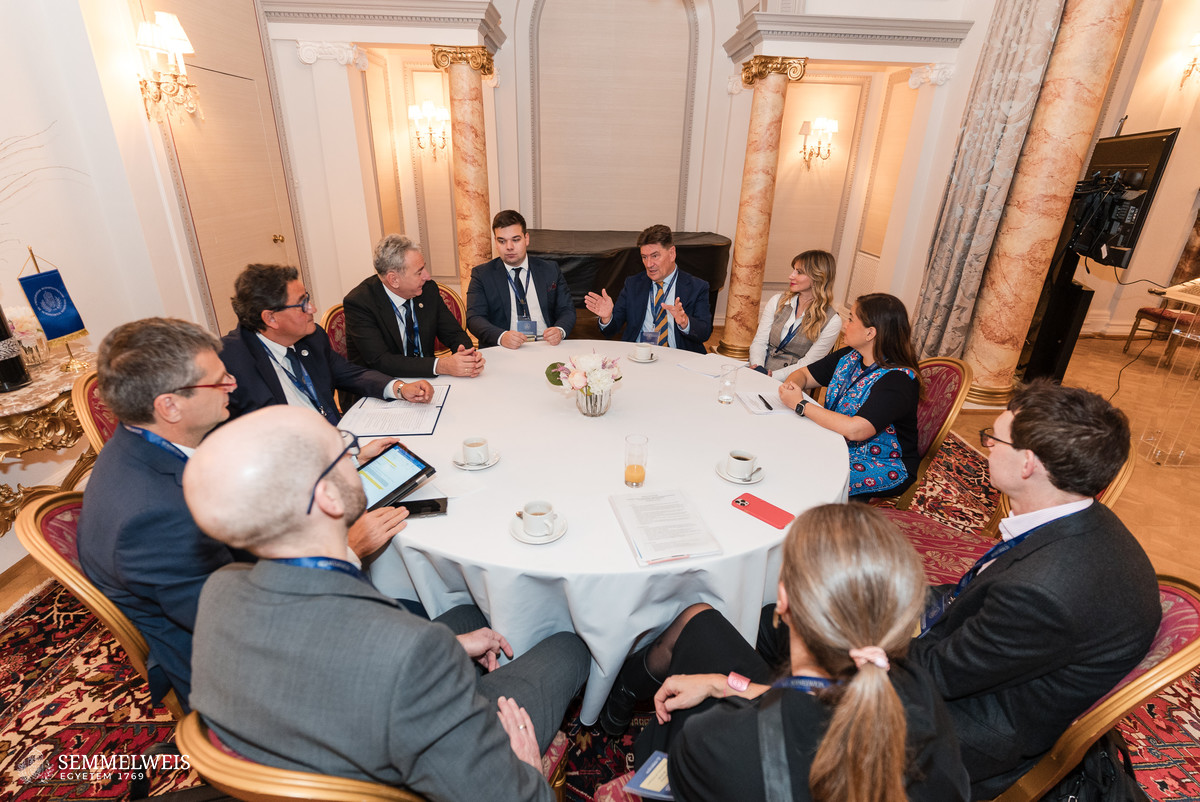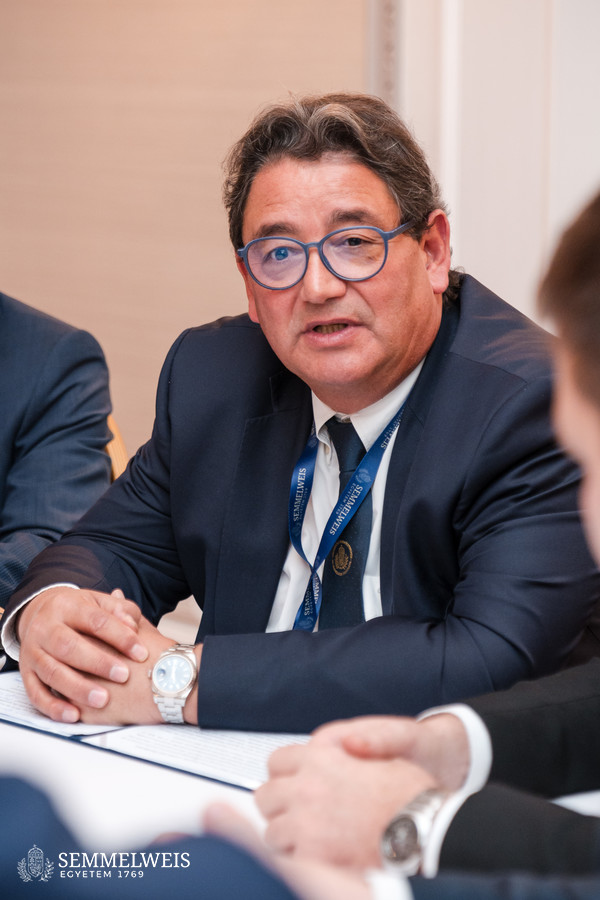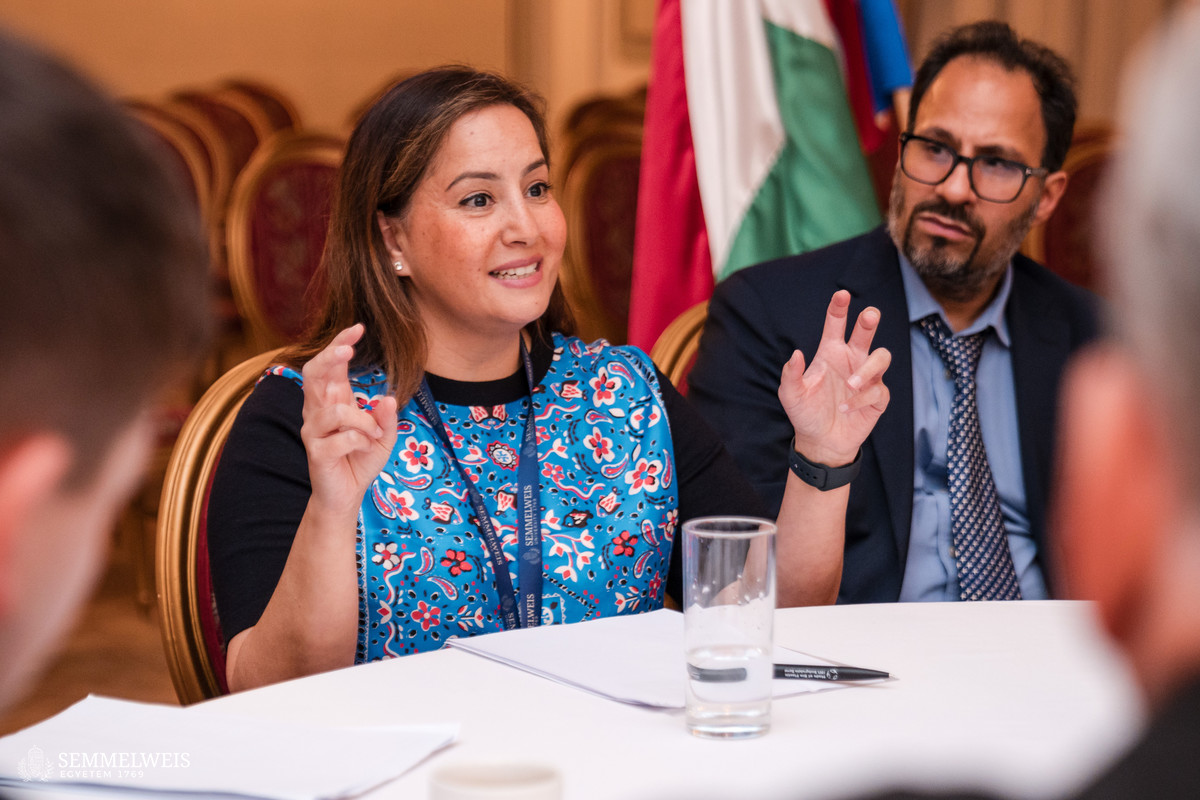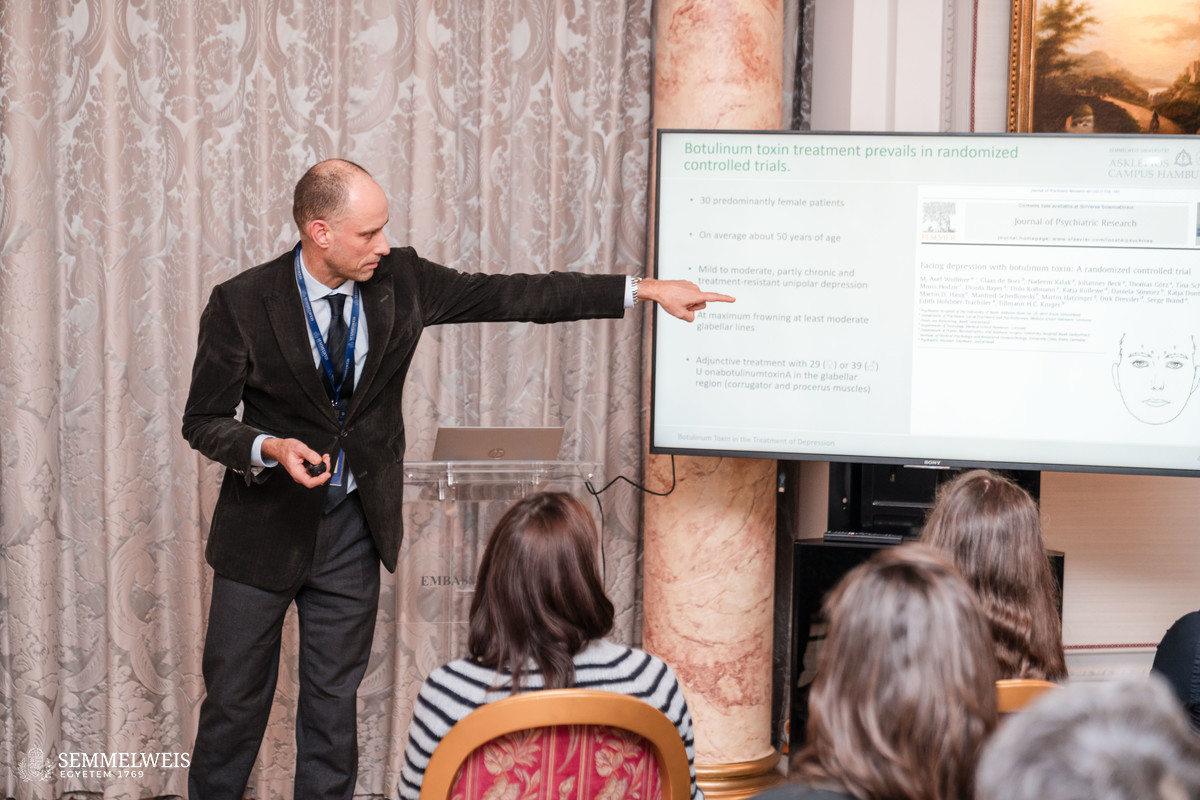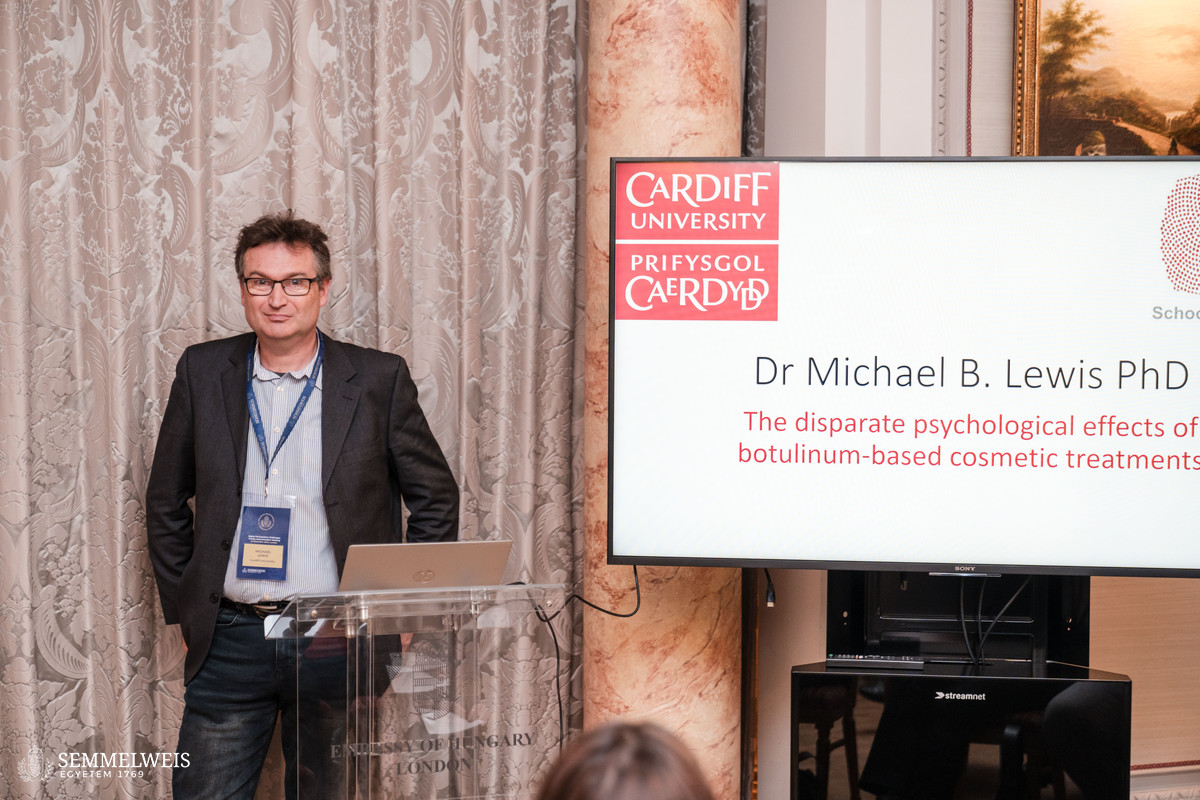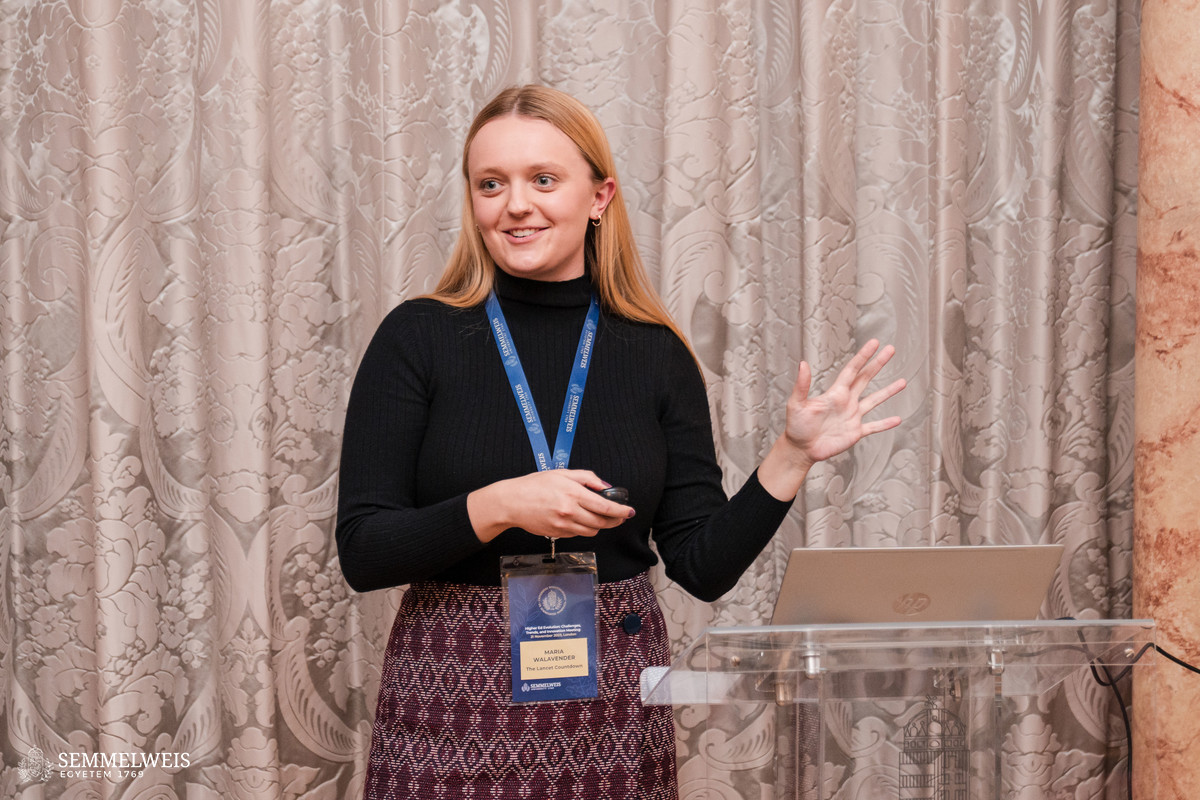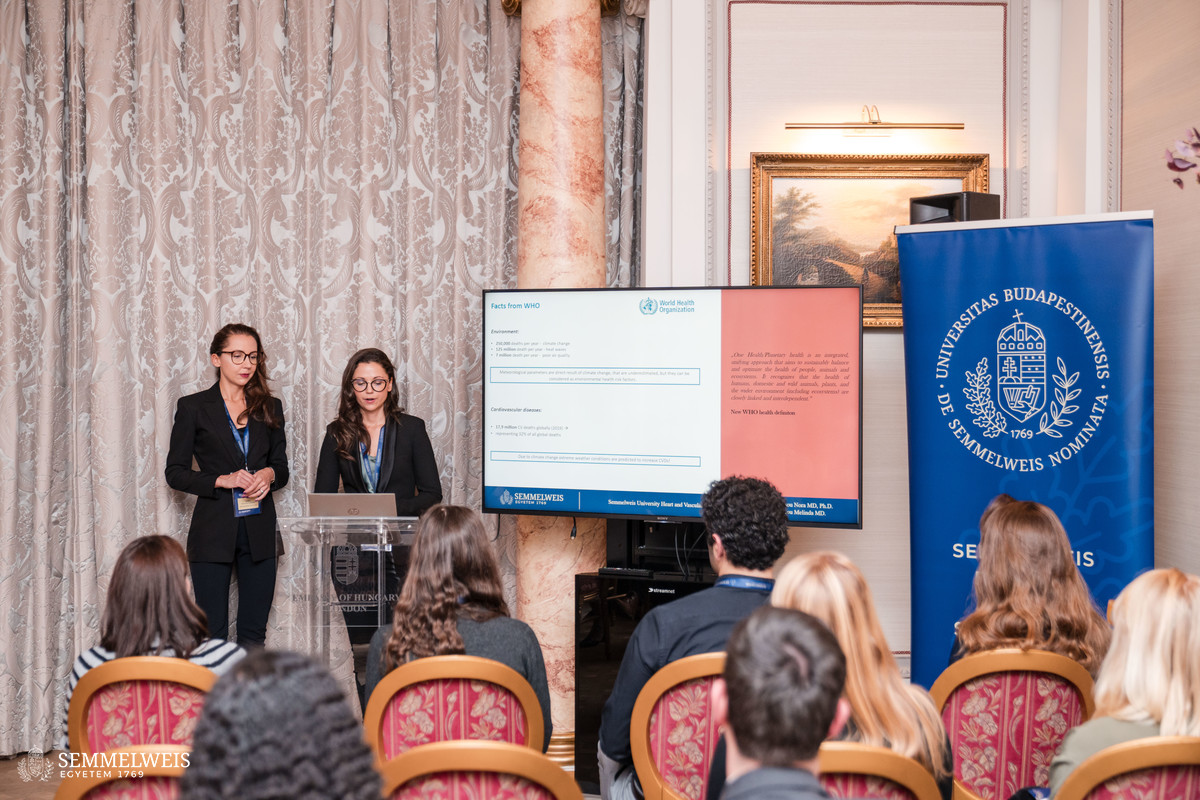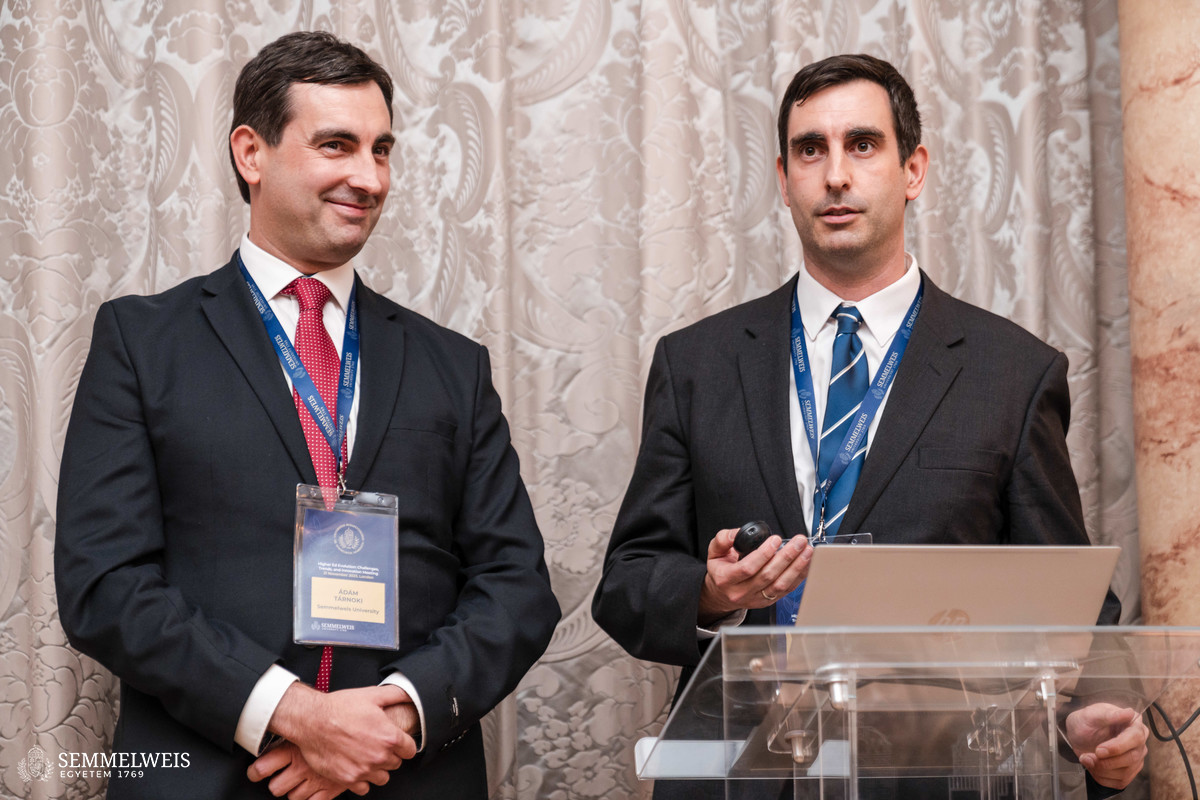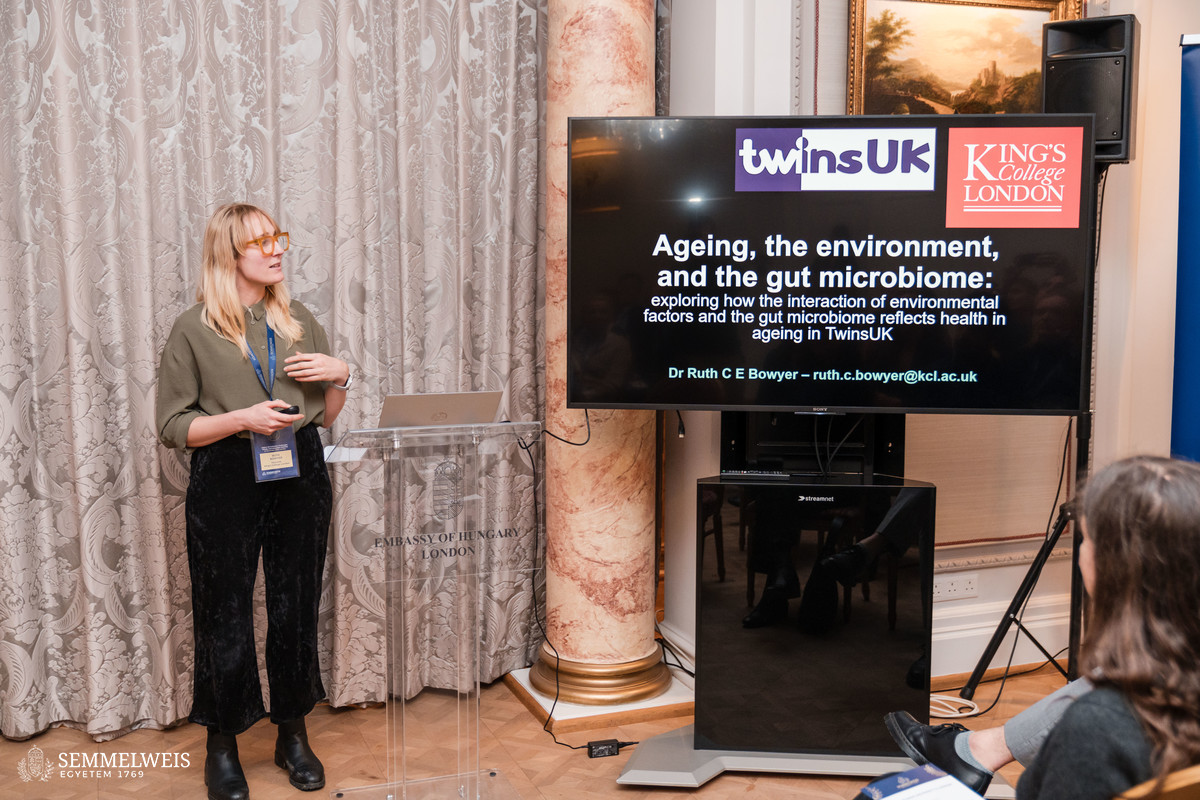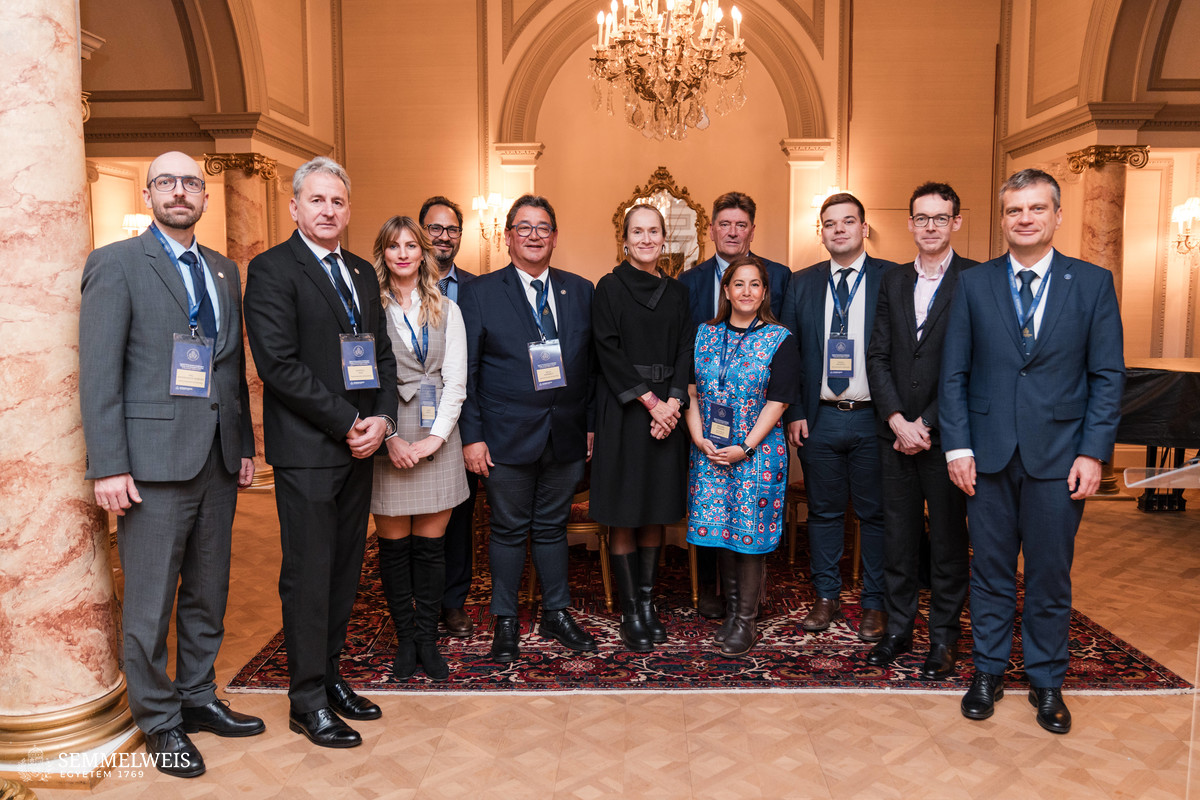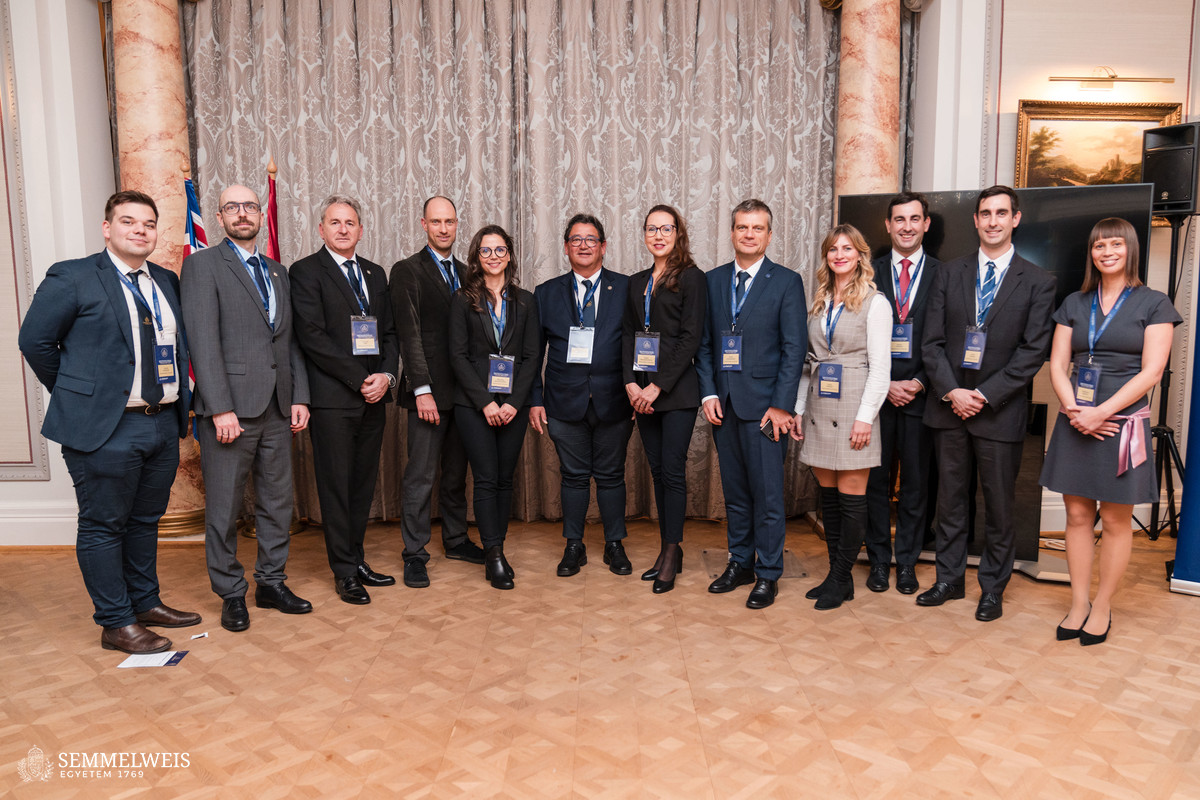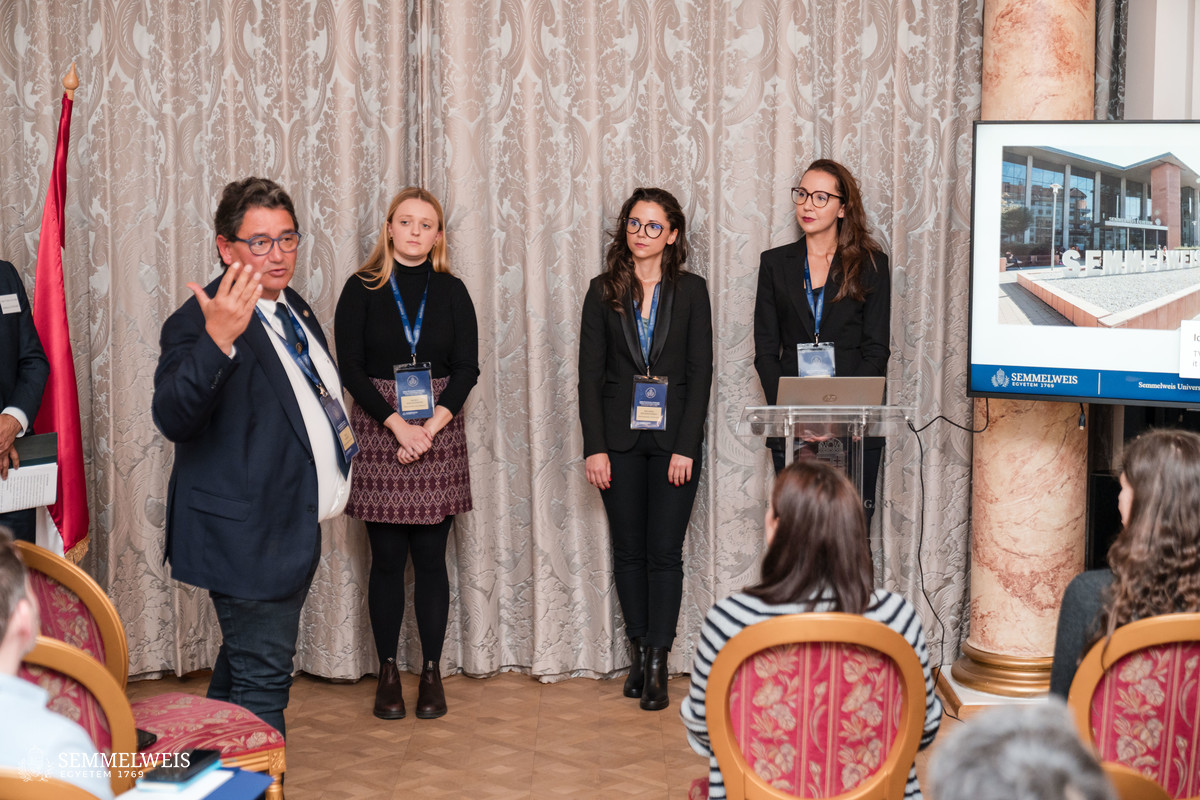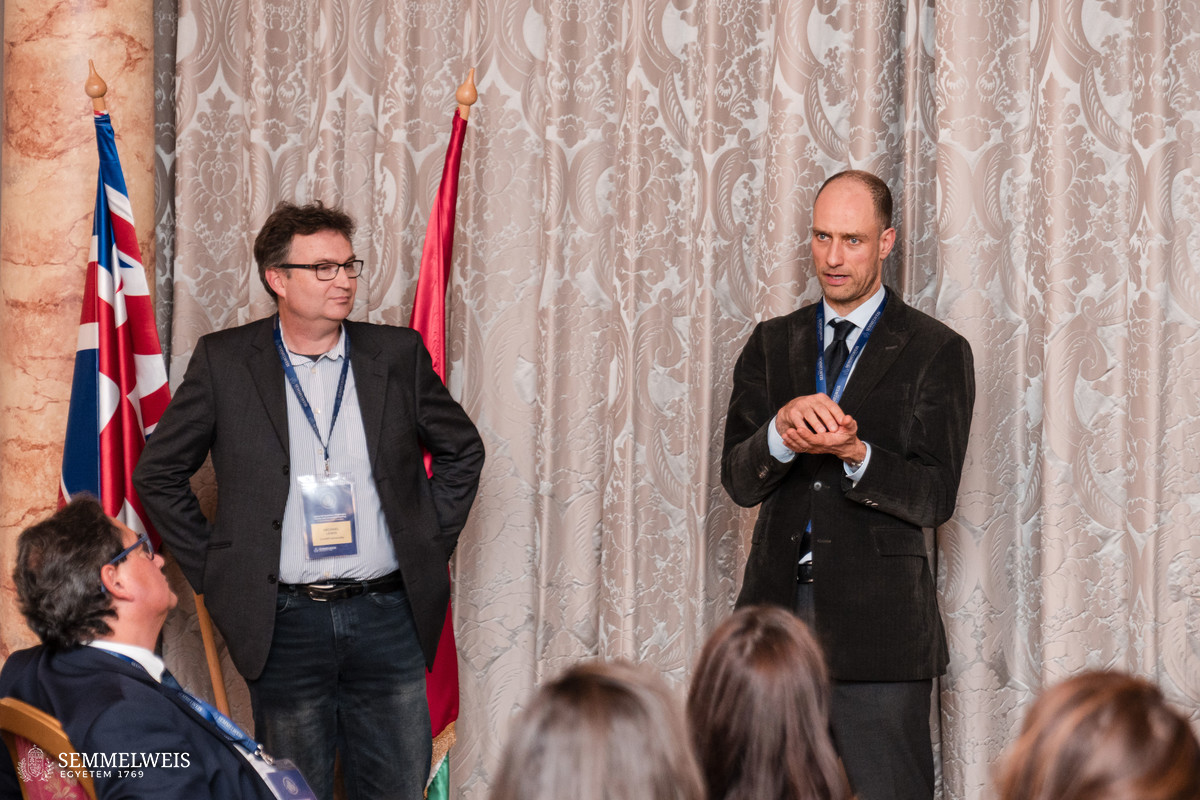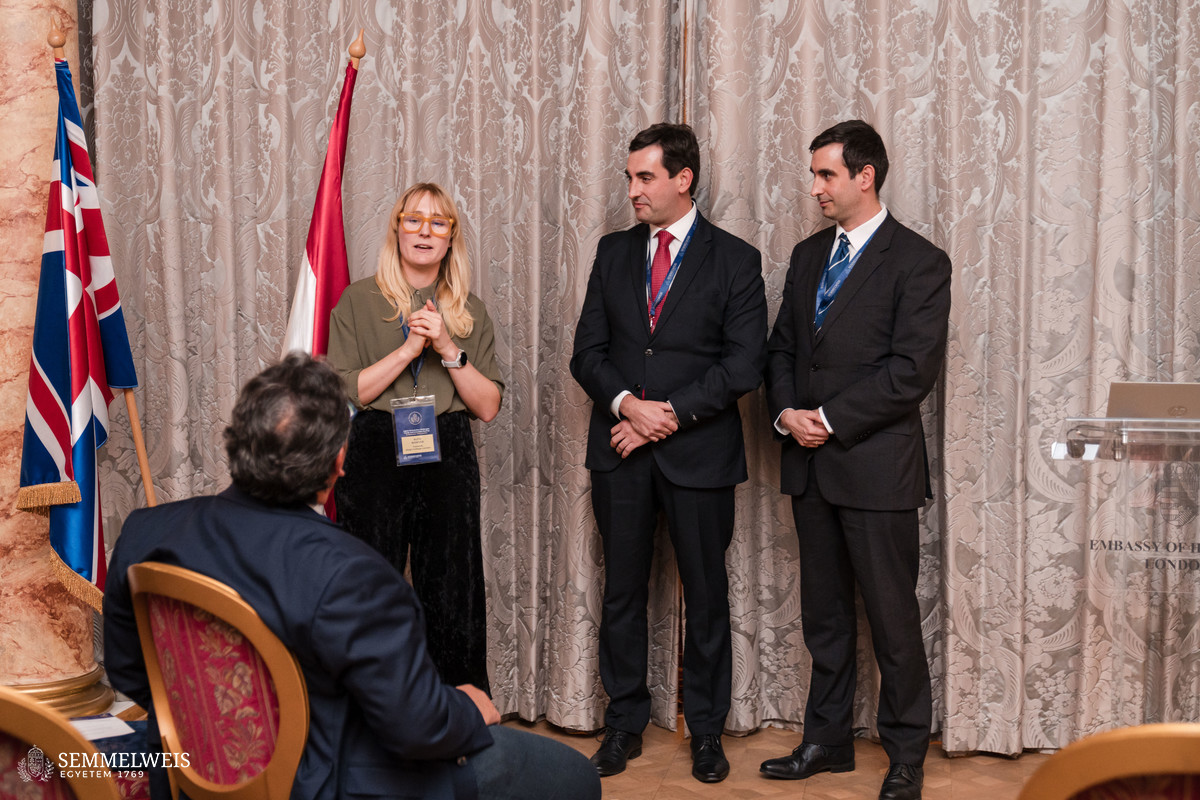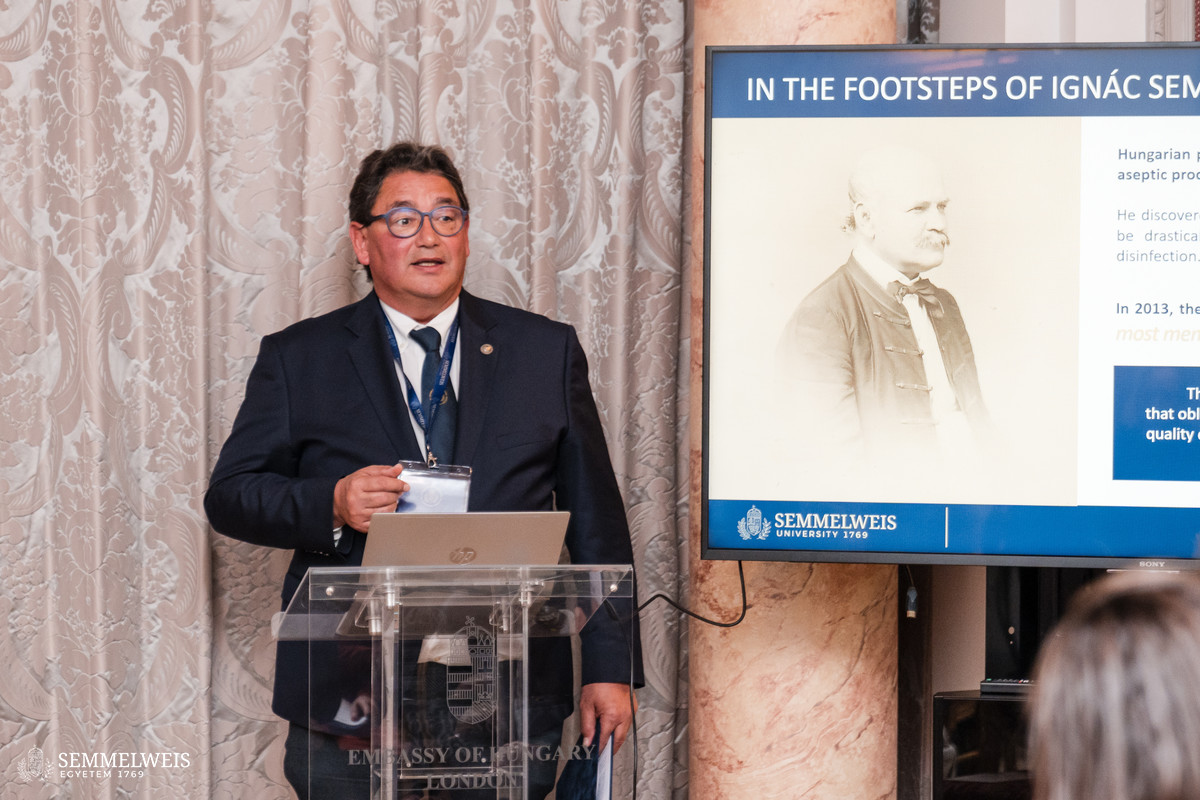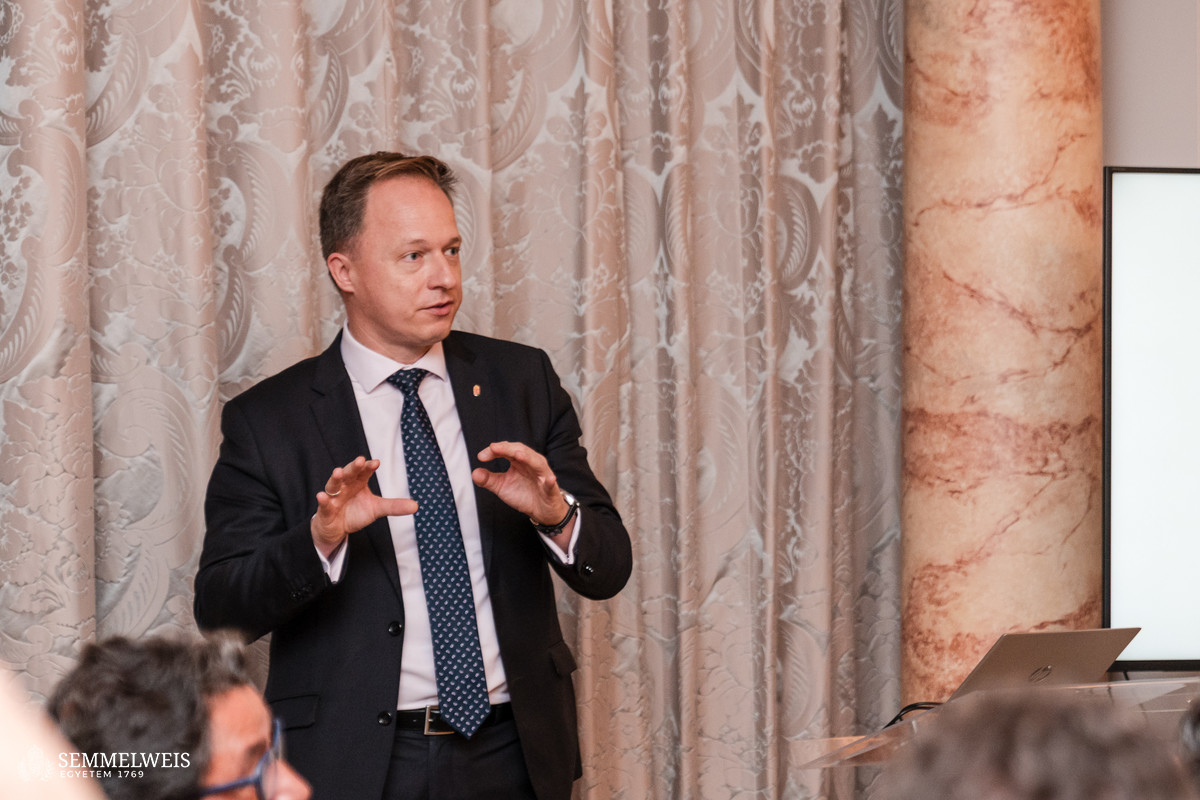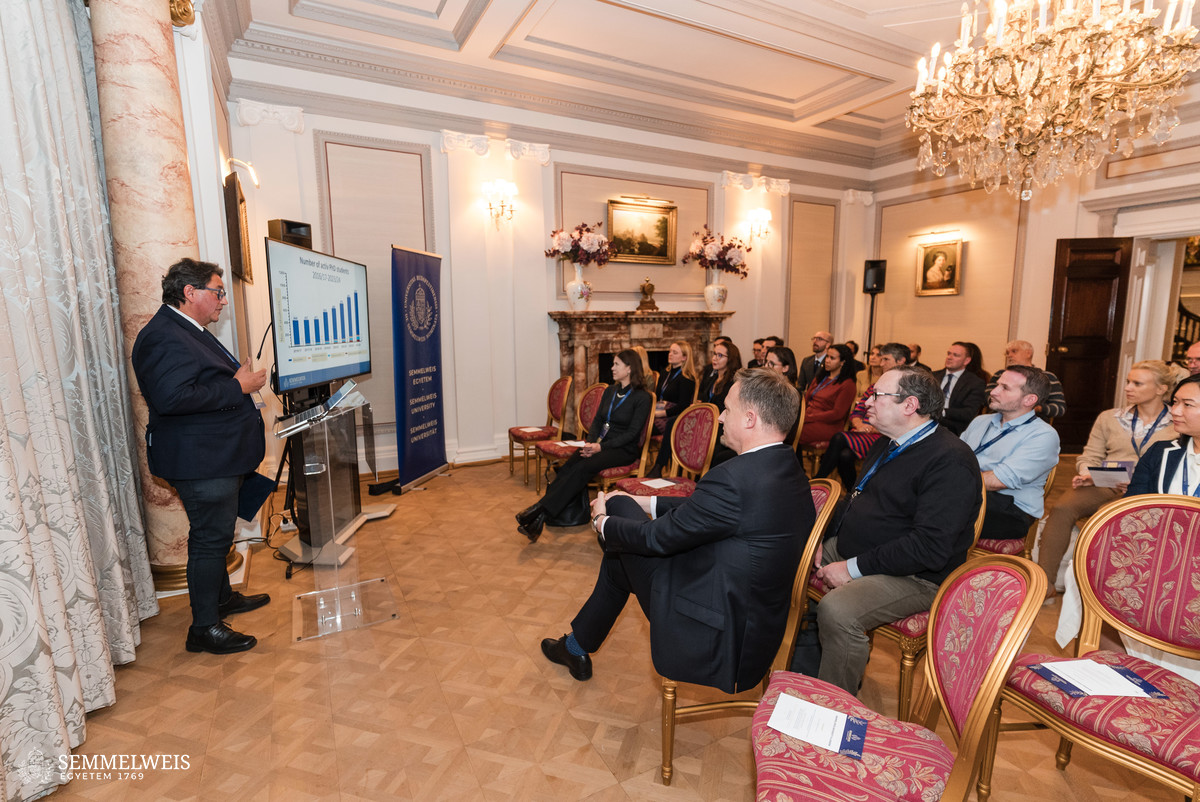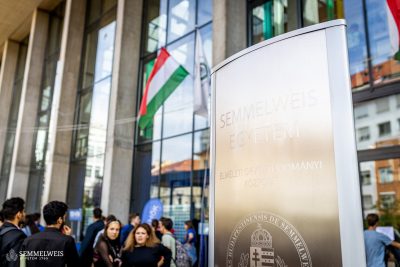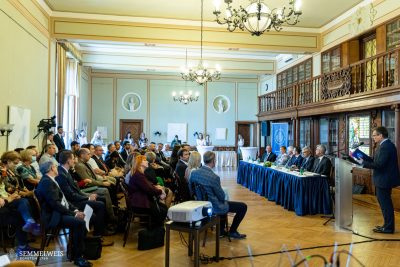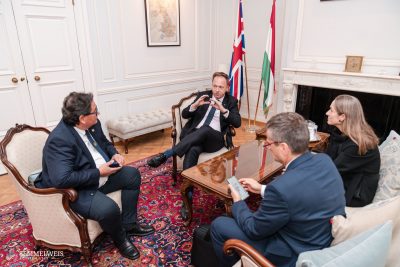 The Tuesday, 21st November event aimed to strengthen international relations and build cooperation between the institutions. It also introduced Semmelweis University’s education and research excellence to British journalists.
The Tuesday, 21st November event aimed to strengthen international relations and build cooperation between the institutions. It also introduced Semmelweis University’s education and research excellence to British journalists.
Meeting before the public event, Ambassador Ferenc Kumin welcomed some delegation members, including the Rector Dr. Béla Merkely.
Later Semmelweis University held a roundtable discussion led by Dr. Péter Ferdinandy, Vice-Rector for Science and Innovations.
The participants, Dr. Béla Merkely, Rector, Dr. Beatrix Busse, Vice-Rector for Teaching and Studies at the University of Cologne, Dr. Clive Page, Professor of Pharmacology and Director of the Pulmonary Pharmacology Unit at King’s College London, Dr. Melanie Madhani, Professor of Cardiovascular Medicine at the University of Birmingham, Dr. Mark Westwood, Director of Medical Education at Barts Heart Centre, Dr. Ronak Rajani, Consultant Cardiologist from King’s College London and Dr. Pál Maurovich Horvat, Director of the Medical Imaging Centre at Semmelweis University, discussed the subject of Higher Ed Evolution: Challenges, Trends, and Innovation – Meeting Challenges by Fostering Academic and Scientific Collaboration.
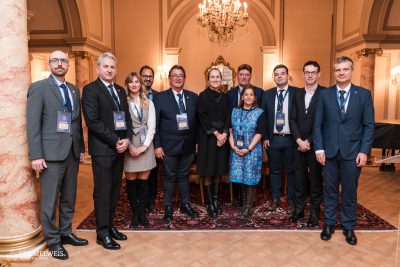 Following the thought-provoking session, British journalists, along with other invitees, received an introduction to Semmelweis University’s world-renowned education and research.
Following the thought-provoking session, British journalists, along with other invitees, received an introduction to Semmelweis University’s world-renowned education and research.
In his opening speech, Ambassador Ferenc Kumin highlighted that there is a significant Hungarian scientific diaspora and alumni community in the UK.
“Due to their brilliance, especially in the STEM and life sciences, Hungary punches way beyond our weight. It is one of the Embassy’s top priorities to support Hungarian science by nurturing the connection to the Hungarian diaspora, fostering Hungarian-UK scientific connections, and supporting Hungarian academic institutions in the UK.
The Ambassador also mentioned that the name ’Semmelweis’ became more familiar to the British public in recent months thanks to Sir Mark Rylance’s brilliant play ’Dr Semmelweis’.
“It is our pleasure to support Semmelweis University to familiarise the British scientific community with the world-class research at the University and with its international partners”, he added.
Addressing the participants and reflecting on this year’s Hungarian Nobel-prize winners (Dr. Katalin Karikó and Dr. Ferenc Krausz), Dr. Béla Merkely said: “Although they were the ones to make the Nobel Prize-winning discoveries, their success naturally draws attention to Hungarian science as well. And to one more thing: the importance of cooperation. If we share and coordinate the knowledge we have with our international partners, we can make our research more effective and thus achieve outstanding results.”
The rector highlighted Semmelweis University’s international cooperation with world-famous universities such as Harvard, the Karolinska Institutet and, in the UK, the University of Birmingham in the framework of EUniWell.
Dr. Béla Merkely also addressed the invited British health, science and education journalists by thanking them for their help in sharing the most relevant scientific findings with the public in their everyday work.
In this sense, your work is crucial not only in providing information but also in disseminating scientific results and thus promoting scientific development. And although there may be different ideas about what counts as news value, there is no dispute between us about what counts as value: and that is life, health and their protection. This is our mission. In this noble work, we, researchers, doctors and you, representatives of the press, are partners and close allies.”
After the welcome speeches and the rector’s introductory presentation to Semmelweis University’s history and education, Semmelweis researchers and their British university colleagues provided insights into some of their most exciting and relevant research projects.
Twins and twin-researchers – and the founders of the Hungarian Twin Registry at Semmelweis University – Dr. Ádám Tárnoki and Dr. Dávid Tárnoki, presented their latest findings on the possible connection between gut health and neurodegenerative disorders such as Alzheimer’s disease.
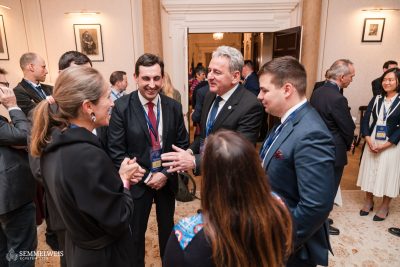 In the same scientific area, TwinsUK research fellow Dr. Ruth Bowyer from King’s College London shared her research experiences in the field of the gut microbiome, environmental factors and ageing.
In the same scientific area, TwinsUK research fellow Dr. Ruth Bowyer from King’s College London shared her research experiences in the field of the gut microbiome, environmental factors and ageing.
Dr. Axel Wollmer, a psychiatrist and psychotherapist from Semmelweis University’s Asklepios Campus Hamburg, talked about his work on the positive effects of Botulinum toxin on depression.
His British counterpart, Dr. Michael Lewis, a reader from Cardiff University, also highlighted what other psychological effects cosmetic treatments can have on emotion, empathy and sexual satisfaction.
Finally, research fellow Dr. Maria Walawender from the University College of London’s Lancet Countdown project gave an insight into the organisation’s work on how environmental factors affect health.
A talk from sibling researchers Dr. Nora Boussoussou and Dr. Melinda Boussoussou from Semmelweis University’s Heart and Vascular Centre followed her talk. They presented their unique work on a new scientific field, Cardiometeorology, which examines the relationship between atmospheric parameters and cardiovascular diseases.
The 50-person event, also attended by members of the Semmelweis alumni community, ended with hospitality, including Hungarian food, wine and a networking opportunity.
Photo: Matyas Mitter, Luminosity Media
